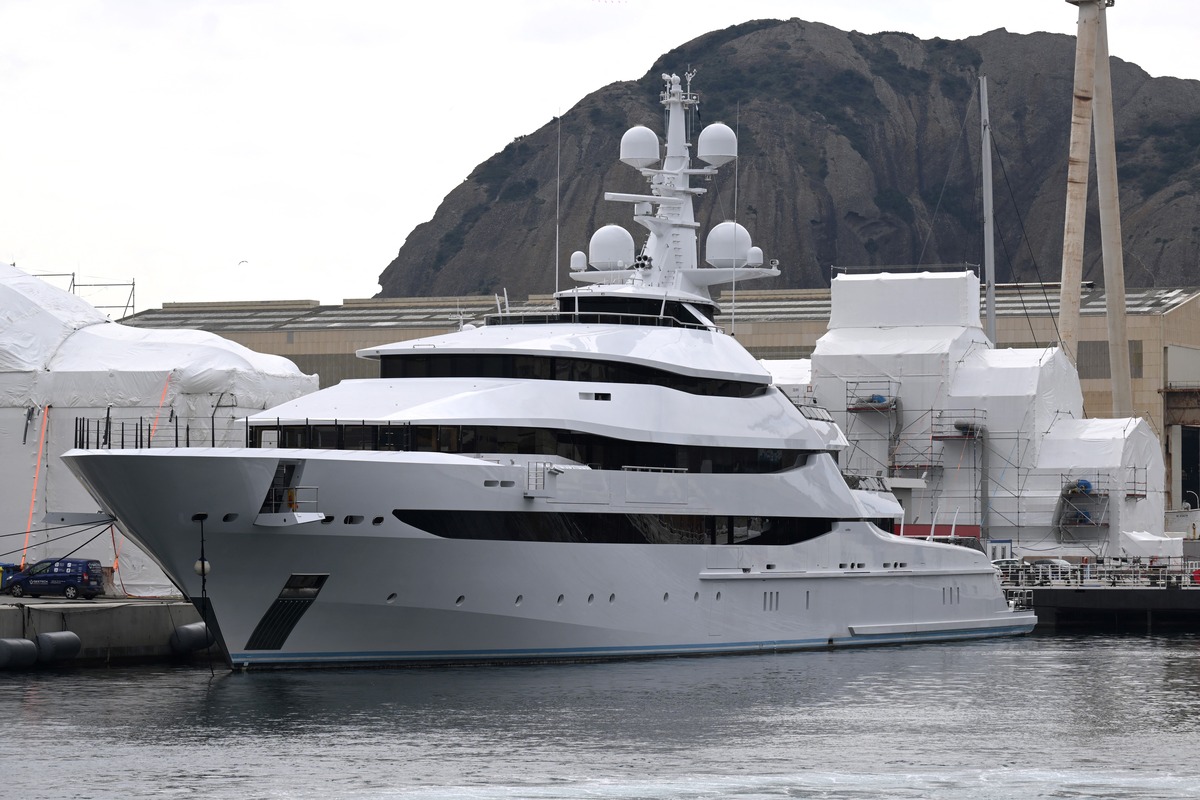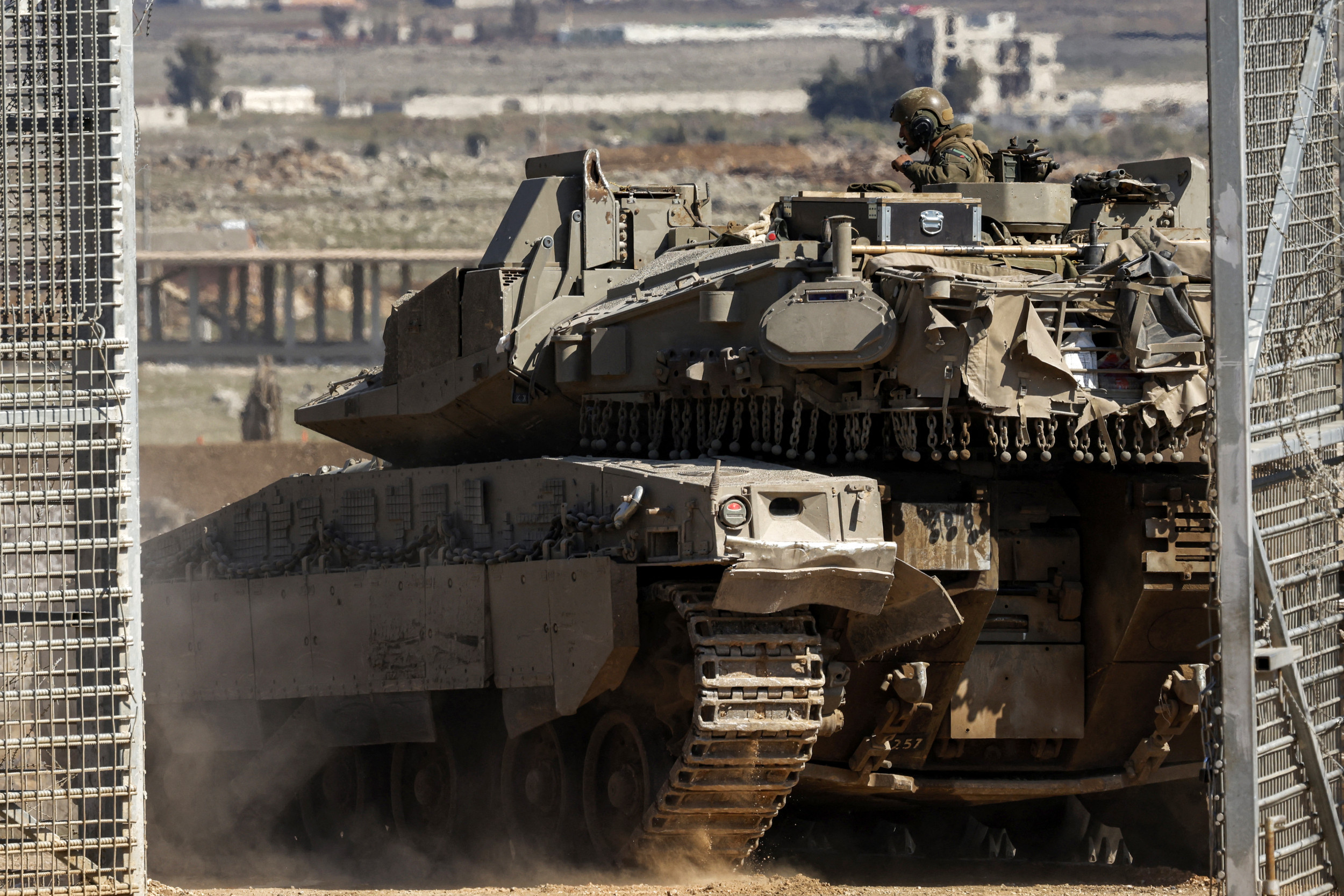Secretary of State Marco Rubio will issue a fresh warning to European allies at a NATO meeting of foreign ministers this week, pushing for the continent to keep up orders of American weapons, according to a new report.
Rubio is scheduled to be in Brussels between Wednesday and Friday.
Why It Matters
The Trump administration has demanded that European NATO members dramatically up their defense spending, as the U.S. increasingly looks away from the continent toward the Indo-Pacific. European officials publicly and privately agree that Europe must do more to ensure its own defense, with wavering confidence in how reliable an ally the U.S.—which has historically provided much of the continent's most expensive military capabilities—now is.
European initiatives to boost defense spending in line with U.S. insistence have sought to fund industry on the continent, paving the way to a more powerful European military-industrial complex. It is still not clear how big a step Europe will take away from the U.S.' formidable defense industry, and how the Trump administration's stance could impact the country's defense giants.
What To Know
Reuters reported on Wednesday, citing five anonymous sources, that U.S. officials had already informed their European allies they wished for continental countries to keep up purchases of U.S. weapons.
An unnamed State Department official told the news agency that Rubio would also discuss the American position on European weapons orders from U.S. companies during a visit to Brussels this week.
"It's a point the secretary has raised and will continue to raise," the anonymous official said.

A State Department spokesperson told Newsweek that the U.S. was still "committed to providing our Allies and partners with high-quality, American-made defense articles at a competitive price to support their self-defense requirements."
Although Trump "welcomes" Europe's defense push, "transatlantic defense industrial cooperation makes the Alliance stronger," the spokesperson said.
"U.S. defense companies are an integral part of the transatlantic industrial base and global supply chains; they bring advanced technologies, innovation, and competitive pricing that enhances Europe's defense capabilities with the necessary speed and scale," they added. "Maintaining NATO standards and interoperability as the foundation of Alliance security requires that all Allies work together on building our capabilities."
In early January, ahead of Trump's inauguration, NATO Secretary General Mark Rutte urged against "new barriers" forming between alliance members that would "increase costs, complicate production, and hamper innovation."
It is "vital" to involve non-EU NATO members in defense industry expansion, Rutte said.
Referencing these remarks, the State Department spokesperson said: "We agree."
"They are upset about ReArm proposal and that the U.S. is excluded," one senior European source told Reuters.
The European Commission unveiled the ReArm Europe plan last month, intended to make it easier for EU member states to funnel investment into defense. The European Commission said the multi-layered proposal would free up more than $860 billion for military investment, and give states access to roughly $160 billion in EU-backed loans to "boost their defence capabilities through common procurement."
The EU has said increases in defense spending will prioritize European manufacturing, bringing in "economic benefits" for its member states. Under the plan, European countries will host "new factories and production lines essential for generating good jobs in Europe."
Efforts to rearm will focus on air defense missiles, artillery ammunition and the systems to fire them, drones and counter-drone warfare as well as other areas, said European Commission chief, Ursula von der Leyen.
One European official told Newsweek there is some hesitancy to move wholly away from buying U.S. weapons, but an appetite to buy European alternatives wherever possible and treat procurement on a "case by case" basis.
The official pointed to European projects like the development of the IRIS-T air defense system, which has performed "quite convincingly" in Ukraine. This could be a viable alternative to the U.S.-made and in-demand Patriot anti-aircraft system, the official suggested.
Another European official told Newsweek that "not everything is replaceable" when searching for alternatives to U.S. kit.
French President Emmanuel Macron has loudly lobbied for European countries to opt for continental procurement.
"My intention is to go and convince European states that have become accustomed to buying American," he told French media in March.
"Those who buy Patriot should be offered the new-generation Franco-Italian SAMP/T," Macron said, referring to an air defense system previously described by Paris' government as a "fully European system." But the SAMP-T struggled to intercept ballistic missile attacks once in Ukraine, The Wall Street Journal previously reported.
The U.S. is "by far" the largest of the world's arms suppliers of the past four years, making up 43 percent of global arms exports, a report released by the Stockholm International Peace Research Institute (SIPRI) said in March.
Some officials float the argument that continuing to buy American weapons would be an economic tie binding the U.S. to Europe, likely to appeal to a somewhat unpredictable but deal-oriented Trump.
One of the European officials that spoke to Newsweek said the U.S. may have been "upset" by European moves to support industry on the continent, but even if doubts over U.S. reliability had not stained the transatlantic relationship, Europe would still need to build up its own industry.
The official said there is an increasing concern that European militaries would be restricted in their use of U.S. weapons by Washington, stemming from the constraints put on Ukraine's use of Western weapons against Russia, like the U.S.-provided long-range ATACMS.
Many U.S. allies are in the process of receiving orders of American F-35 fighter jets, the only real option for a fifth-generation stealth fighter on the market for NATO members.
Reports had suggested the aircraft contained an inbuilt "kill switch," which could be used on a White House whim to effectively control the aircraft bought and operated by allied countries.
Experts and officials have downplayed these concerns, but concede that the U.S. could have a noticeable impact on how well these aircraft could operate, should it choose to influence software upgrades or change access to intelligence.
The latter is likely to play heavily on the minds of European officials, after the Trump administration briefly severed Ukraine's access to U.S.-derived intelligence last month in an apparent attempt to force Kyiv to negotiate on a ceasefire deal.
Canada is currently reviewing its planned F-35 procurement, although it is "not cancelling" the agreement for the moment, a spokesperson for Ottawa's defense ministry told Newsweek on Tuesday. Portugal's previous government had also encouraged a reevaluation of its planned F-35 purchases.
What People Are Saying
France's President Macron said last month he was on a mission to "convince European states that have become accustomed to buying American" to go for continental options.
An unnamed State Department official told Reuters of continued U.S. arms sales to Europe: "It's a point the secretary has raised and will continue to raise."
What Happens Next
It remains unclear how European NATO states will toe the line between attempting to keep Washington onside by opting for high-tech U.S.-made equipment, and doubling down on strengthening Europe's domestic industry.
Update 4/2/2025 at 11 a.m. ET: This article was updated with a comment from a State Department spokesperson.
About the writer
Ellie Cook is a Newsweek security and defense reporter based in London, U.K. Her work focuses largely on the Russia-Ukraine ... Read more




